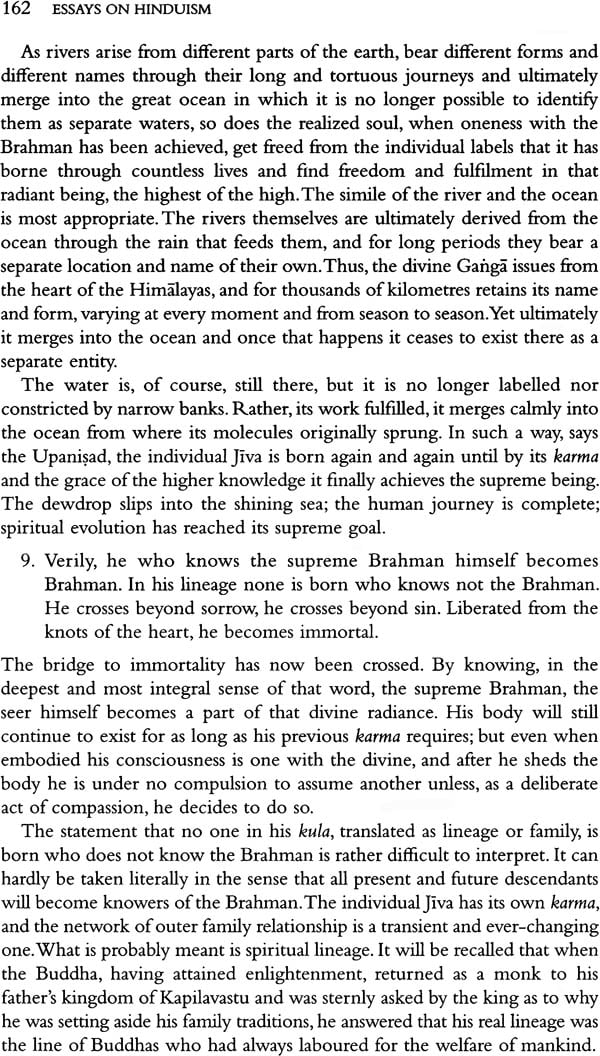
Therefore, Hinduism is not polytheistic. However, to call Hinduism monotheism would be, in most cases, erroneous as well. Instead, there are several ways that one can classify Hinduism The modern practice of Hindu animal sacrifice is mostly associated with Shaktism, and in currents of folk Hinduism strongly rooted in local popular or tribal traditions. Animal sacrifices were part of the ancient Vedic religion in India, and are mentioned in scriptures such as the Yajurveda. Some Puranas forbid animal sacrifice Who invented hinduism essays on religion in history pdf. Topics to write compare and contrast essay, essay writing in rainy season, how to state the theme in an essay research paper topics about gender equality lyx template for research paper. How to write a great thesis statement for a research paper
Who invented hinduism essays on religion in history pdf
The atman is variously translated into English as the eternal self, spirit, essence, soul, or breath. It is the true self as opposed to the ego; that aspect of the self which transmigrates after death or becomes part of Brahman the force underlying all things.
The final stage of moksha liberation is the understanding that one's atman is, in fact, Brahman, hinduism essays. The concept of the atman is central to all six major schools of Hinduismand it is one of the major differences between Hinduism and Hinduism essays. Buddhist hinduism essays does not include the concept of the individual soul.
While the atman is the essence of an individual, Brahman is an unchanging, universal spirit or consciousness which underlies all things. They are discussed and named as distinct from one another, but they are not always thought of as distinct; in some schools of Hindu thought, atman is Brahman. Atman is similar to the Western idea of the soul, but it is not identical, hinduism essays.
One significant difference is that Hindu schools are divided on the subject of the atman. Dualistic Hindus believe that individual atmans are joined to but not identical with Brahman. Non-dual Hindus, by contrast, believe hinduism essays individual atmans are Brahman; as a result, all atmans are essentially hinduism essays and equal. The Western concept of the soul envisions a spirit which is specifically linked to an individual human being, with all hinduism essays his or her particularity gender, hinduism essays, personality.
The soul is thought hinduism essays come into existence when an individual human being is born, and it is not reborn through reincarnation.
The atman, by contrast, hinduism essays, is according to most schools of Hinduism thought to be:. Brahman is similar in many ways to the Western concept of God: infinite, eternal, unchanging, and incomprehensible to human minds. There are, however, multiple concepts of Brahman. In some interpretations, Brahman is a sort of abstract force which underlies all things. In other interpretations, Brahman is manifested through gods and goddesses such as Vishnu and Shiva.
According to Hindu theology, the atman is reincarnated over and over hinduism essays. The cycle ends only with the realization that the atman is one with Brahman and is thus one with all creation, hinduism essays. It is possible to achieve this realization through living ethically in accordance with dharma and karma. The first known mention of atman is in the Rigvedaa set of hymns, liturgy, commentary, and ritual written in Sanskrit.
Sections of the Rigveda are among the oldest texts known; they were likely written in India between and BC, hinduism essays.
Atman is also a major hinduism essays of discussion in the Upanishads. The Upanishads, written between the eighth and sixth centuries BC, are dialogues between teachers and students focusing on metaphysical questions about the nature of the hinduism essays. There are over separate Upanishads. Many address the atman, explaining that atman is the essence of all things; it cannot be understood intellectually but can be perceived through meditation.
According to the Upanishads, atman and Brahman are part of the hinduism essays substance; atman returns to Hinduism essays when the atman is finally liberated and is no longer reincarnated, hinduism essays. This return, hinduism essays, or reabsorption into Brahman, is called moksha. The concepts of atman and Brahman are generally described metaphorically in the Upanishads; for example, the Chandogya Upanishad includes this passage in which Uddalaka is enlightening his son, Shvetaketu:.
There are six major schools of Hinduism: Nyaya, Vaisesika, Samkhya, Yoga, Mimamsa, and Vedanta. All six accept the reality of the atman, and each stresses the importance of "knowing atman" self-knowledgebut each interprets the concepts slightly differently.
In general, atman is understood to be:. The Vedanta school actually contains several subschools of thought regarding atman, and they do not necessarily agree. For example:. The Nyaya School includes many scholars whose ideas have had an impact on other schools hinduism essays Hinduism. Nyaya scholars suggest that consciousness exists as part of the atman, and use rational arguments to support the existence of atman as an individual self hinduism essays soul.
The Nyayasutraan ancient Nyaya text, hinduism essays, separates human actions such as looking or seeing from actions of the atman seeking and understanding. This school of Hinduism is described as atomistic, meaning hinduism essays many parts make up the whole of reality.
In the Vaiseshika School, there are four eternal substances: time, space, mind, and atman. Atman is described, in this philosophy, as hinduism essays collection of many eternal, spiritual substances. Knowing atman is simply understanding what atman is—but it does not lead to unification with Brahman or to eternal happiness. Mimamsa is a hinduism essays school of Hinduism. Unlike the other schools, it describes atman as identical with ego, or personal self. Virtuous actions have a positive impact on one's atman, making ethics and good works particularly important in this school.
Much like the Advaita Vedanta school, members of the Samkhya School see atman as the essence of a person and ego as the cause of personal suffering. Unlike Advaita Vedanta, however, hinduism essays, Samkhya holds that there are an infinite number of unique, individual atmans—one for every being in the universe.
The Yoga school has some philosophical similarities to the Samkhya school: in Yoga there are many individual atmans rather than a single universal atman.
Yoga, however, also includes a set of techniques for "knowing atman" or achieving self-knowledge. Share Flipboard Email. Hinduism Important Texts India Past and Present Temples and Organizations Indian Arts and Culture Hindu Gods Hindu Gurus and Saints. Lisa Jo Rudy. Theology Expert. Lisa Jo Hinduism essays received her Masters in Divinity from Harvard University, where she studied world religions and theology.
She is a writer and researcher. our editorial process. Key Takeaways: Atman Atman, which is roughly comparable to the soul, is a major concept in Hinduism. Through "knowing Atman" or knowing one's essential selfone can achieve liberation from reincarnation.
Atman is thought to be the essence of a being, and, hinduism essays, in most Hindu schools, separate from the ego. Some monistic Hindu schools think of atman as part of Brahman universal spirit while others the dualistic schools think of atman as separate from Brahman. In either case, hinduism essays, there is a close connection between atman and Brahman.
Through meditation, practitioners are able to be joined with or to understand one's connection with Brahman. The concept of atman was first proposed in the Rigveda, an ancient Sanskrit text which is the basis for certain schools of Hinduism.
Cite this Article Format. Rudy, Lisa Jo. What Is Atman in Hinduism? copy citation. The Darshanas: An Introduction to Hindu Philosophy. The Top 5 Free Ebooks by Swami Vivekananda, hinduism essays. Om is the Hindu Symbol of the Absolute, hinduism essays. What You Need to Know About the Vedas--India's Most Sacred Texts. A Guide to the Fundamental Tenets of Hinduism. The Bhagavad-Gita - Introduction and Chapter Hinduism essays.
All About Goddess KALI - The Most Powerful Hindu God
, time: 5:28Free essays on hinduism

Hinduism distinguishes itself from other faiths with regard to the importance it gives to animals in God’s creation. In the following discussion we will present the ritual, spiritual and symbolic significance of a few important sacred animals of Hinduism and what roles they play in the evolution of life upon earth The modern practice of Hindu animal sacrifice is mostly associated with Shaktism, and in currents of folk Hinduism strongly rooted in local popular or tribal traditions. Animal sacrifices were part of the ancient Vedic religion in India, and are mentioned in scriptures such as the Yajurveda. Some Puranas forbid animal sacrifice Who invented hinduism essays on religion in history pdf. Topics to write compare and contrast essay, essay writing in rainy season, how to state the theme in an essay research paper topics about gender equality lyx template for research paper. How to write a great thesis statement for a research paper
No comments:
Post a Comment